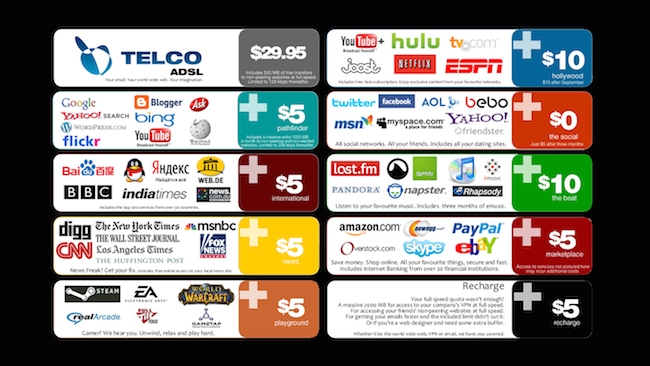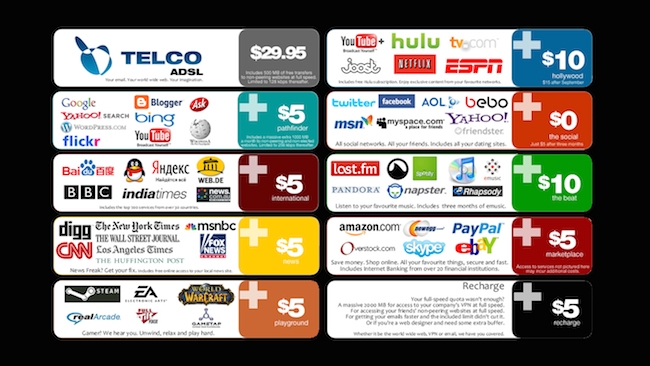
 What the non-neutral future may look like
What the non-neutral future may look like
The free and open internet us under threat from changes to the law proposed in the US
The principle of net neutrality is a simple one, namely that ISPs, governments and all other organisations engaged in the running of the internet should treat data equally. Charges for carriage of data should not vary for any reason: a byte is a byte is a byte, whether you're carrying a handful of them that will make up an email or a whole deluge of them that will coalesce into a 4K movie...which is pretty much where the problem lies.
Seen by many as a cornerstone of the open internet, the US regulator, the FCC, is however on the verge of proposing legal changes in US net neutrality laws that look set to overturn many years of carefully curated neutral status.
And much of the reason is down to the likes of Netflix, Hulu and Amazon and the streaming services that look set to flood the networks with an increasing amount of data as cord-cutting accelerates and a greater percentage of video is transmitted over the net. The big US ISPs — the Comcasts and Time Warners of the world — want to be able to charge them a premium to ensure a dedicated, quality-assured service with no drop outs, and it looks like the FCC is starting to listen to their arguments.
Common Carrier Loophole
The regulators' own Open Internet rules state that providers must have transparency of network management practices, not block lawful content, nor unreasonably discriminate in transmitting lawful network traffic. However, Verizon has exploited what amounts to a loophole in the FCC's charter, the DC Circuit Court determining in January that the FCC has no authority to enforce Network Neutrality rules, as service providers are not identified as "common carriers" in the same way that telecoms companies are (a decision that the FCC made itself when it categorised them in the early 2000s).
As you can imagine the legal arguments only get more complex from there, but the Wall Street Journal has claimed that, against the White House's wishes, behind the scenes the FCC is now proposing entirely new rules that would allow companies to pay for faster access to their websites and services, so long as they are sold on 'commercially reasonable' terms.
ISPs would be forbidden from blocking or slowing down access to websites as long as they're legal — something long a worry for Open Internet supporters — but a lot will hinge on what a five-strong panel considers to be truly 'commercially reasonable' as they look set to examine future developments on a case-by-case basis.
The Likely Way Forward
Campaigners want to see ISPs reclassified as utility companies and brought firmly under FCC control, but the deal Netflix signed with Comcast back in February to ensure more bandwidth for its services looks likely to be the way forward in the future. Indeed in its recent announcement about price rises it said that the increase would help the company "deliver an even better streaming experience", a tacit admission that (as CEO Reed Hastings wrote in March) "while in the short term Netflix will in cases reluctantly pay large ISPs to ensure a high quality member experience, we will continue to fight for the internet the world needs and deserves."
Of course, there are no surprises for guessing which part of the new, pay per play superhighway all the lovely 4K content currently being commissioned will be directed towards. Already likely to be priced at a premium at source, for it then to cost more to download from a two or even three-speed internet could stall adoption significantly, at least in the US.
Last word for the moment though goes to the White House. "Absent net neutrality, the Internet could turn into a high-priced private toll road that would be inaccessible to the next generation of visionaries," the Obama administration said in a statement in February.
It is an argument that will probably run and run. Keep track of it without paying premium prices while you still can...
Tags: Studio & Broadcast


Comments